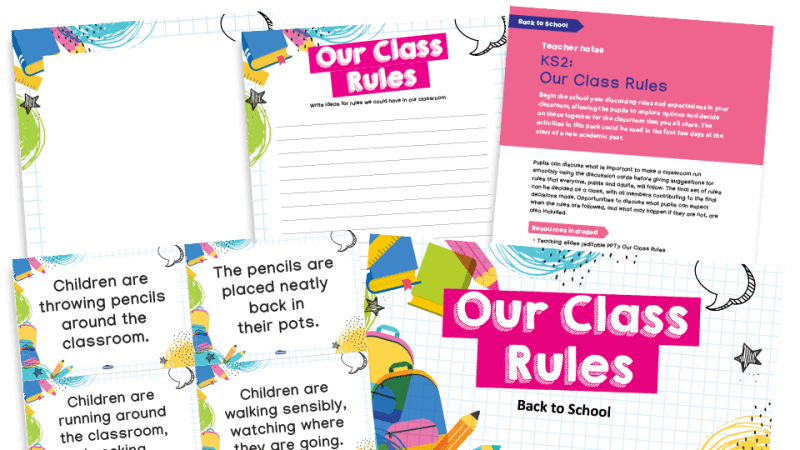Independent learning – what should education look like in a modern world?

When it comes to intellectual and emotional development in EYFS and KS1, can we have our cake and eat it, too, asks Elizabeth Powell…

Do you ever wonder what we are educating children for?
What do you want pupils to get out of being at your school and in your class?
The curriculum has become tougher and more crowded, and it can be hard sometimes to take a step back and ask ourselves why – why do we teach what we do, and what can we offer children to help to ensure they have a happy and successful future?
I have asked myself this question for as long as I have been teaching, and even more frequently since I became a parent 20 years ago.
What experiences do we want our children to have and what are we helping them to become?
What does an education need to look like in this modern world; a world where the current system seems so out of kilter with the needs of the working population?
A country’s economic success, driven by adult life satisfaction, is affected heavily by children’s emotional wellbeing and also their pro-social behaviours (The Economic Journal, 2014. What predicts a successful life? A life-course model of wellbeing).
Whereas ‘the intellectual development of the child is the least important of the three dimensions of child development, when we consider life-satisfaction as the outcome of interest’.
So what does this mean in practical terms? Can we have our cake and eat it?
Can we fulfil the needs of the curriculum, developing each pupil’s intellectual capabilities and also ensure we support all children in having the best chance at a happy and successful future through emotional wellbeing and pro-social behaviour interventions?
Independent learning activities KS1
At my school, we have taken a long journey to ringfence a designated time for children to lead their learning in Reception and KS1.
We call this Independent Learning Time (ILT) and it is a protected time to develop the children’s self-worth and skills acquisition. We’ve been through many iterations of it.
Each day, children choose a project to work on in this time.
The project must be appropriately challenging and this takes support and guidance from adults.
Appropriate challenge is one which is not too easy and not too hard; we say that the children need to find the Goldilocks Zone!
Once they have a challenge, pupils work to solve it, and over time they are supported to develop key skills such as resilience, tenacity, problem solving, divergent thinking and perseverance.
In KS1, once the children have well-developed individual learning skills and a strong sense of self-worth, they then work in groups to develop their collaborative learning skills such as compromise, negotiation and effective communication.
Valuing children’s interests and ways of working is crucial in ILT, and we use these to ensure that the children are intrinsically motivated to complete their chosen project.
Projects can happen using any resource and in a variety of spaces. The possibilities are endless.
We’ve done all sorts of things, including making a small table for a miniature restaurant (Year 1 project), making wearable cardboard shoes (Year 2), and using forest resources (sticks etc) to make a small person (Reception).
See the panel at the end of this article for a list of ideas.
How to measure learning
We use a learning line model during ILT and we refer to a challenge as being in the ‘rough red’.
Children then work on their challenge and we refer to this as ‘growing green’.
When they are successful, they reach ‘brilliant blue’.
If children are not challenging themselves, we refer to this as ‘beginning black’; this part of the learning line represents what the child can already do independently.
Essentially the gap between beginning black and brilliant blue is Vygotsky’s Zone of Proximal Development (the difference between what a learner can do without help and what they can achieve with guidance and encouragement from a skilled partner).
The amount of time it takes for a child to move through this learning line varies – some can work on a single project for days or weeks – and we monitor each child’s journey.
The planning sessions are key to the success of ILT, and at the start of each day in Reception we plan with a handful of children.
This is supported by the whole class and all of the pupils’ learning is moved on through these discussions; it is in these sessions that high expectations are set.
Children learn about possible challenges and help to invent new ones. They can be inspired by other pupils, come up with unique ideas or develop projects with reference to sources such as the real world and our environment, books and the internet.
We put a big focus on vocabulary development, too, which can be in spheres of children’s interest such as castles and dinosaurs, or more closely linked to curriculum subjects, such as scientific vocabulary.
We also develop the language of learning itself, and children begin to understand and apply words such as patience, perseverance, resilience, divergent thinking and so on.
In KS1, where there is more of a timetable constraint, children still plan, and abilities move on as pupils are more experienced and many can plan independently, with a little support and guidance to fine-tune ideas.
Children who find coming up with ideas trickier are given more adult time to help them to find a challenge.
We review ILT daily in Reception, and sometimes during and at the end of each session, too. In KS1, we review the learning during sessions.
Involve the community
Parents are important in the success of ILT and its key role in developing children’s emotional wellbeing, prosocial behaviours and learning characteristics.
They receive half-termly ILT summaries in Reception and termly summaries in KS1.
Summaries identify what learning skills children are developing, including the ones they have mastered and those they need to work on next as targets.
Families are encouraged to look at the photographs and videos of their children’s ILT projects with their child and discuss the learning and their child’s understanding of their successes and next steps.
Often a dialogue is started between teacher and parent about their child’s learning processes and how they can help at home to develop these further.
We have recently invited parents to attend an adult ILT session to help them to understand the process.
We have done this with the teachers in school as well. These sessions have been very successful and enjoyable; adults have relished the opportunity to work on a challenge and develop their own learning skills.
Developing an educational offer which goes beyond our primary remit and seeks to contribute to our children’s adult life satisfaction is a high ideal but one we are not about to give up on.
It isn’t easy but it is important.
ILT project ideas
Reception
- Making a clay sewing machine
- Using natural resources from the forest to create a mini person
- Sewing a felt ball
Year 1
- Making a table for a miniature café
- Writing a book about Batman
- Making connecting tunnels using sand
Year 2
- Drawing the Millennium Falcon from a picture
- Learning to play a tune on the glockenspiel and then performing it
- Learning to do the ‘around the world’ skill using a football
- Making wearable shoes out of cardboard
Year 2 collaborative
- Writing a script and then performing a play
- Planning then executing face paint designs
- Making a photographic comic strip
- Designing, then making a working game using an iPad
Elizabeth Powell is the assistant headteacher at Horsforth Newlaithes Primary School in Leeds.










